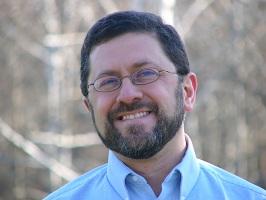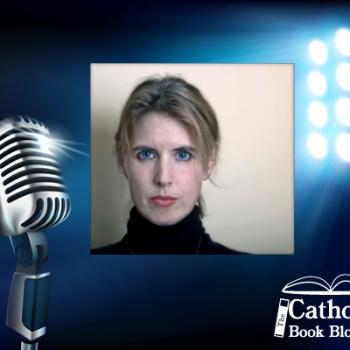 This marks my second interview with author Mike Aquilina. This time a few questions about his contribution to The Fathers of the Church Bible.
This marks my second interview with author Mike Aquilina. This time a few questions about his contribution to The Fathers of the Church Bible.
PETE: I find the concept of this Bible and your 92 Church Fathers inserts a great combination. Can you give us your thoughts on what makes the Church Fathers so relevant to scripture study.
MIKE AQUILINA: When we talk about the Fathers, we’re talking about the great teachers of the first few hundred years of Christian history. They were the Bible’s first Christian interpreters. They were the first to hear the Gospel preached, and some of them heard it from the Apostles themselves. The Bible was entrusted to the holy Fathers by the Apostles, and the Fathers treasured it. Remember, Christianity was illegal for much of its first three centuries, so those documents had to be kept, copied, protected, and preserved at great risk and great expense.
The world of the Fathers was the world of authors of the New Testament. They lived under the same laws. They played the same sports. They paid taxes to the same authorities. They baked bread according to the same methods, using the same grains. The Fathers had access to information and insights that we, at the distance of two millennia, no longer have — unless we have them from the Fathers.
The Fathers received from the Apostles a tradition of reading the Scriptures, and the passed it on in the Church. What Catholics will find interesting is that the Church the Fathers see in the New Testament looks a lot like the parishes we attend every Sunday. It’s centered on the Eucharist. It has a hierarchy. It offers prayers for the dead and asks the intercession of the saints. Its members make the Sign of the Cross and use holy water. They go to Confession, and they get anointed when they’re gravely ill. The Fathers saw that there are good, sound, biblical reasons for doing these things. The reasons still apply today. The Fathers can teach us to read the Scriptures in the spirit — and the Spirit — in which they were written.
All that is great. But what makes the Fathers most relevant is that they’re such great reads. The centuries are like a great sieve. The lesser works get sifted out, and the stuff that remains is pure gold — Ignatius of Antioch, Justin Martyr, John Chrysostom, Augustine.
PETE: 92 inserts is a lot, but with the wealth of information available to us from the Church Fathers how did you decide what to use?
MIKE AQUILINA: It was a tough call. There’s a ton of good material, but my publisher limited me, at first, to just 88 inserts — one for each key on the piano. That seemed to me like hardly anything. St. John Chrysostom and St. Augustine all by themselves occupy several bookshelves in my office, and almost everything they did was a reflection on Scripture! I could easily have filled my allotted pages with bits and pieces from one or another of those men. But then there are about a hundred more teachers whom our tradition refers to as Church Fathers!
I tried to pick out the best of the best. I tried to make the inserts topical. I tried to make them representative. I wanted readers to come away with a strong sense of the Fathers’ methods of reading the Bible. And I wanted readers to come away with a strong sense of the way the Fathers applied the Bible to everyday life.
I also asked myself: What’s most useful to Catholic readers today? So there’s a lot of material that’s helpful for explaining and defending the Catholic faith. Readers will learn how the earliest Fathers, for example, talked about the Mass. There’s also material relevant to the debates over creation and evolution. There’s an insert on the Bible and purgatory.
I was thrilled when my publisher gave me four more pages, bringing the total to 92!
PETE: If you had to pick out of the documents you used for the inserts, what would be the top 3 you would recommend for further study?
MIKE AQUILINA: Pete, I always try to steer people toward the earliest Fathers — called the Apostolic Fathers: Clement of Rome, Ignatius of Antioch, and Polycarp of Smyrna. They’re our window on classic Christianity, the generation after the Apostles. The Apostolic Fathers’ surviving works are few, and they’re brief, but they’re powerful witnesses for our faith. They testify to Jesus’ divinity and his true humanity. They show us a Church that’s eucharistic and hierarchical. They even call that Church “Catholic.” That’s our Church, and it’s theirs, too. We owe them a debt of gratitude for preserving what they received from the Apostles. Thanks be to God for raising up so many generations of faithful witnesses — raising them up to be our Fathers in the faith.
____________________________________________________________________________________________________
Mike Aquilina is author or editor of more than forty books on Catholic history, doctrine, and devotion. Mike’s career in publishing spans three decades, and hundreds of his articles have appeared in periodicals and journals in the United States and abroad. You can find more about Mike and his work at his website, www.mikeaquilina.com.











